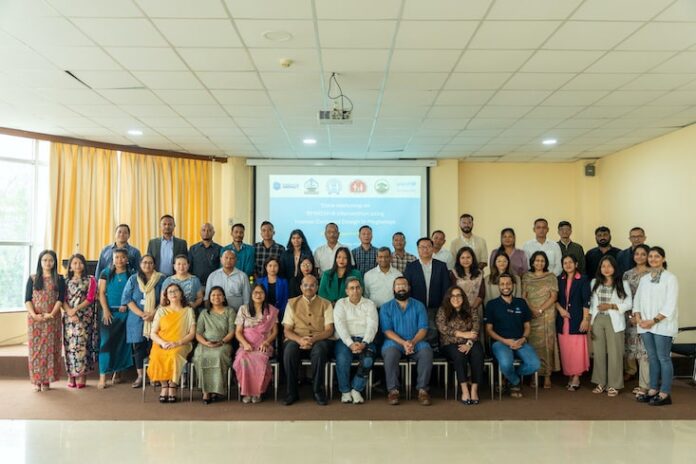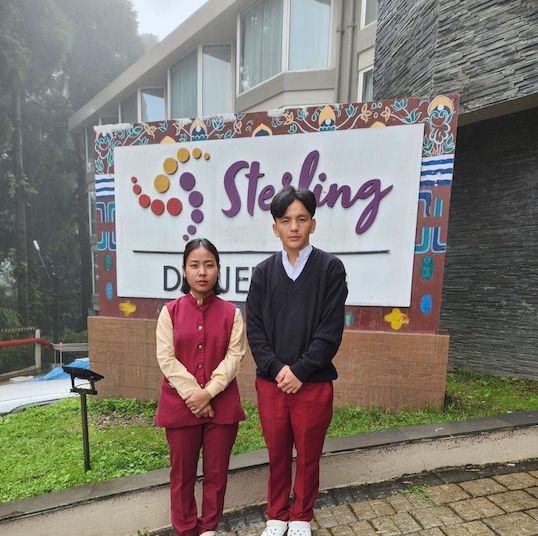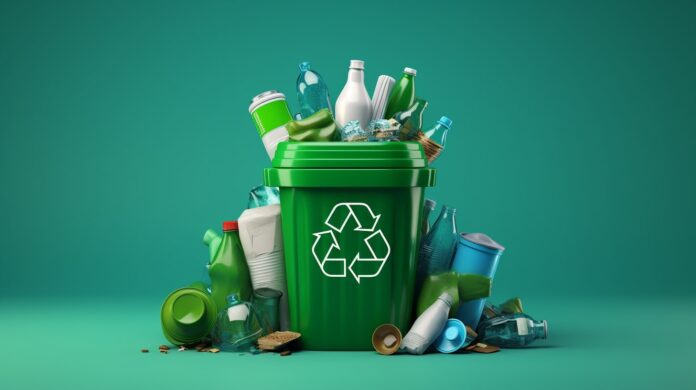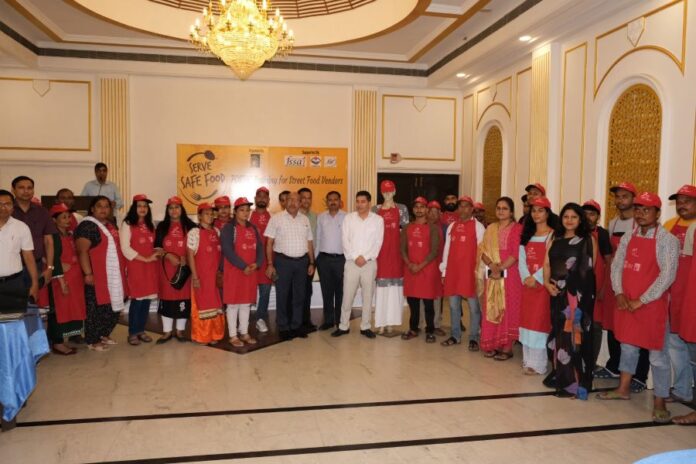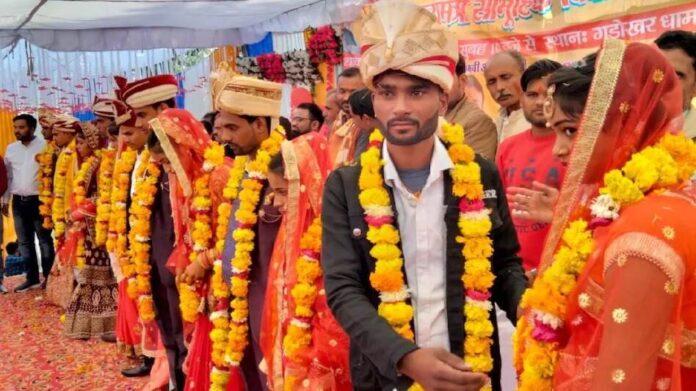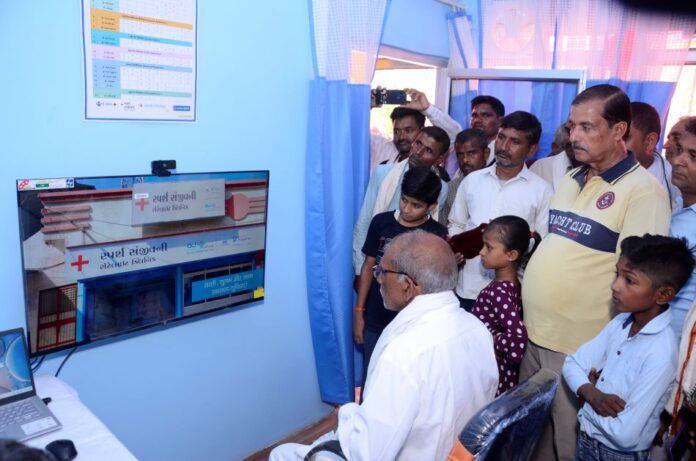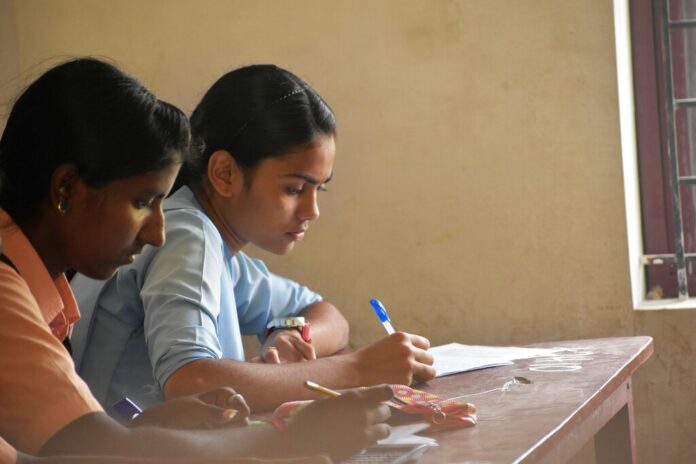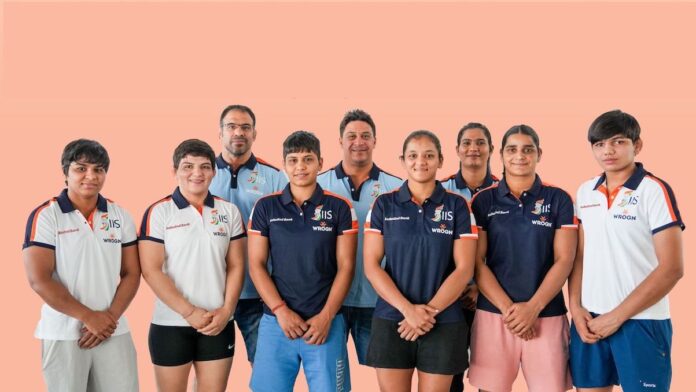CSR: Students from IIFL Foundation, Ministry of Defence supported Program in Arunachal Pradesh Secure Placement at Sterling Hotels
Six students from the Home Stay Training Program at Indira Gandhi Government College (IGGC) in Tezu, Arunachal Pradesh supported by IIFL Foundation, the National Cadet Corp (NCC) under the Ministry of Defence and REACHA have successfully secured placements at Sterling Hotels in Manali, Mussoorie, and Darjeeling.
The successfully placed students are Subani Meyor from Walong, Anjaw, Jija Mipi from Anini, Mawu Melo from Punli, Dibang Valley, Nuya Miso from Punli, Dibang Valley, Esuli Molo from Angrim Valley, Dibang and Pinika Taidong from Changlang, Changlang district.
Commenting on the successful placement of the students Mr. Pema Khandu, Chief Minister of Arunachal Pradesh said, “So happy to learn that 6 candidates – 5 girls and 1 boy – from IIFL Foundation supported Homestay Host Training Program at IGGC, Tezu, have been placed at Sterling Hotel at Manali, Mussoorie, and Darjeeling.”
Mrs. Madhu Jain, Director, IIFL Foundation said, “We are deeply honored by the recognition from the Chief Minister of Arunachal Pradesh. This acknowledgment reinforces our commitment to empowering communities through sustainable development. Thank you to Brigadier Bali, Indian Army, Government of Arunachal Pradesh, Trainers and the REACHA team for their unwavering support and counseling throughout this journey.”
Mr. Nikhil Pant, CEO, REACHA said, “These young trailblazers are not just taking a step forward in their careers but also inspiring other girls and boys to pursue opportunities beyond their hometowns. Best wishes to Subani, Jija, Mawu, Nuya, Esuli, and Pinika on their exciting new journey. Your success is an inspiration to us all!”
This is the first batch of the program that emphasizes on hospitality training, technical skills training as well as teaches essential soft skills such as communication, grooming and computer proficiency.
The home stay program was inaugurated in September 2023 in presence of General Officer Commanding 2 Mountain Division Lt. General M.S Bains, Mrs. Madhu Jain, Director of IIFL Foundation, Brigadier Dr. P.M Bali, Dr. Kangki Megu, Principal, IGGC Tezu, Local District Administration and Mr. Nikhil Pant, CEO, REACHA. Deputy Chief Minister Shri Chowna Mein, MP Shri Tapir Gao and others conveyed their wishes through video messages.
This is IIFL Foundation’s second such project after setting up successful hospitality and retail training centres in Kupwara district in Kashmir which has already provided jobs to local youth in reputed hotels and retail chains. Indian Army and government officials from center and state appreciated IIFL Foundations initiatives in these regions, where infrastructure and economic developments are a part of government’s agenda. The Ministry of Corporate Affairs in May 2023 had called for balanced CSR spending, particularly in the Northeast. Organizations like NCC, THSC, the District Commissioner’s Office and Ministry of Development of North East Region (MDoNER) support this initiative.
This project is aligned with Prime Minister Modi’s vision for Northeast development. IIFL Foundation with REACHA and NCC’s support is taking a vital step in this direction. Collaboration is central to MDoNER’s focus, setting an example for regional development. This initiative promises positive change, nurturing youth potential and creating a brighter future for Tezu and Arunachal Pradesh.
IIFL Foundation is well-known for its successful interventions in the areas of education, health, poverty alleviation and climate action among others. Through its various initiatives the foundation reaches over 10 lac beneficiaries.
Disclaimer: This media release is auto-generated. The CSR Journal is not responsible for the content.
CSR collaboration for the City-Farmer Partnership project in Chikkaballapur, Karnataka
Bangalore, India: Godrej Properties Limited, India’s leading real estate developer, partnered with the Chikkaballapur City Municipal Council (CMC) and the Indian Institute for Human Settlements (IIHS) for the City-Farmer Partnership project in Chikkaballapur, Karnataka to address the city’s waste management challenges and to promote scientific management of solid waste.
Focused on converting organic wet waste into valuable compost for farmers, approximately 759 tonnes of legacy waste was semi-processed into organic compost and supplied to 109 farmers across 17 villages of Chikkaballapur. The compost, processed from 1,000 cubic meters of waste, was provided at no cost to encourage the adoption of organic farming practices. Additionally, more than 569 tonnes of segregated wet waste has been processed through collaboration with 81 farmers.
A key aspect of this initiative and Godrej Properties’ focus is fostering a symbiotic relationship between urban and rural communities. To enhance and educate the farmer communities and stakeholders on the benefits of sustainable waste management practices, IIHS conducted multiple training sessions for more than 100 farmers on converting municipal waste into organic compost. Additionally, 45 CMC staff members were trained on key aspects of waste management. The training focused on the importance of segregated waste collection and transportation for the success of the city-farmer partnership project.
A series of ward-level and feedback meetings have been conducted as part of the City-Farmer Partnership for the Solid Waste Management (SWM) project to promote waste segregation at source. These meetings have been attended by CMC officials, the IIHS project team, Anganwadi workers, volunteers engaged in monitoring door-to-door collection of waste, and about 50 residents from each ward. To drive home the messaging and create awareness at the ground level, six street plays and a road show traversed key streets in Chikkaballapur, engaging citizens and commercial establishments with messages about the benefits of waste separation.
Mr. Rohit Mohan, Chief Design and Sustainability Officer, Godrej Properties Ltd., said “We recognize the substantial challenges posed for urban waste management, including growing volume of urban waste and improper waste segregation. Engaging communities through initiatives such as training farmers to convert municipal wet waste into organic compost is one of our important projects catering to our long-term environmental goals. This collaboration with Chikkaballapur farmers highlights our dedication to positively collaborate with multiple communities and contributing towards solid waste management across Urban local bodies. By enabling local communities to turn urban solid waste into valuable resources, we seek to drive enduring environmental improvements and support sustainable farming practices. As environmentally conscious developers, we remain committed to promoting sustainable waste management practices through public-private partnerships and engagement with local communities.”
Godrej Properties has been focusing on driving awareness and capacity building for the need for sustainable waste management across urban and rural communities in addition to sustainable waste management across all construction sites. In FY24 Godrej Properties successfully diverted more than 43,000 tonnes of waste from landfills achieving Net Zero Waste to landfill status.
Disclaimer: This media release is auto-generated. The CSR Journal is not responsible for the content.
CSR: Street food vendors to be trained under Project ‘Serve Safe Food’ in Uttarakhand
Uttarakhand, India: Expanding the geographical footprints of Project ‘Serve Safe Food’ in Uttarakhand, Nestlé India has continued its collaboration with Food Safety and Drug Administration (FDA), Uttarakhand, and National Association of Street Vendors of India (NASVI) to train over 1200 street food vendors in Dehradun, Chamauli, Rudra Prayag, Tehri Garhwal and Uttar Kashi districts, taking the total to 3,200 street food vendors in the state. Since its inception in 2016, Project ‘Serve Safe Food’ has benefitted over 68,500 street food vendors across 26 states and 4 union territories by bringing together various stakeholders to create a comprehensive training programme.
Mr. Taj Bar Singh, Additional Commissioner, FDA, Uttarakhand, said, “Street food vendors cater to a large section of the society. It is important for them to ensure food safety and hygiene, and Project ‘Serve Safe Food’ is positively contributing to this area. I am thankful to National Association of Street Vendors of India (NASVI) and Nestlé India for their continued partnership with FDA, Uttarakhand which is helping us elevate the food hygiene and safety standards in the state.”
Mr. Sanjay Khajuria, Director, Corporate Affairs and Sustainability, Nestlé India said, “Project Serve Safe Food embodies our commitment to improve the food safety environment by going beyond the quality and safety of our own products. The project has been working towards empowering the street food vendors by upgrading their skills through relevant trainings on hygiene and food safety practices. We are confident that we would continue to work closely with our partners and make a positive impact in the society.”
Nestlé India launched Project Serve Safe Food in 2016 and has trained street food vendors across states including Assam, Andhra Pradesh, Arunachal Pradesh, Andaman and Nicobar Islands, Bihar, Chhattisgarh, Delhi, Goa, Gujarat, Haryana, Himachal Pradesh, Jammu and Kashmir, Jharkhand, Karnataka, Kerala, Madhya Pradesh, Maharashtra, Manipur, Meghalaya, Nagaland, Odisha, Puducherry, Punjab, Rajasthan, Sikkim, Tamil Nadu, Telangana, Tripura, Uttar Pradesh, and Uttarakhand.
Disclaimer: This media release is auto-generated. The CSR Journal is not responsible for the content.
सामूहिक विवाह योजना का चाहिए लाभ तो अपनाएं ये प्रक्रिया
उत्तर प्रदेश में हर वर्ग की जरूरतमंद बेटियों के विवाह के लिए शुरू की गई सामूहिक विवाह योजना को और अधिक पारदर्शी तरीके से लागू करने के लिए समाज कल्याण विभाग ने नियम और प्रक्रियाओं को और अधिक पारदर्शी बनाने के लिए एसओपी तैयार की है। इसके अंतर्गत उत्तर प्रदेश के जिलों में सामूहिक शादी कराए जाने की स्थिति में जिलाधिकारी की मौजूदगी जरुरी होगा। आयोजन के समय पात्र जोड़ों की पुष्टि के लिए अलग से रजिस्ट्रेशन काउंटर के साथ मंडल के उपनिदेशक और नजदीकी जिले के समाज कल्याण अधिकारी भी मौके पर उपस्थित होकर समस्त व्यवस्थाओं का जायजा लेंगे और विभाग को रिपोर्ट देंगे।
इस 1 लाख जोड़ों की सामूहिक विवाह करवाएगी सरकार
उत्तर प्रदेश सरकार इस फाइनेंशियल ईयर में 1,06,911 जोड़ों के विवाह का लक्ष्य तय किया है। सामूहिक विवाह के लिए चुने गए कपल्स में से 10 प्रतिशत जोड़ों के रैंडम सत्यापन जिलाधिकारी के निर्देश पर राजस्व या अन्य विभाग के अधिकारियों द्वारा किए जाने के प्राविधान किए गए हैं। जांच प्रक्रिया को पुख्ता किए जाने के लिए जिले स्तर पर समिति को इसकी जिम्मेदारी दी गयी है। जांच के दौरान मौके पर उपस्थित आस पड़ोस के व्यक्तियों से पूर्व में विवाह न होने की पुष्टि की जाएगी, जिससे किसी भी दशा में अपात्र योजना का लाभ प्राप्त न कर सकें।
सामूहिक शादी में कपल्स को ये दी जाएगी मदद
सामूहिक विवाह समारोह में दांपत्य जीवन में खुशहाली एवं गृहस्थी की स्थापना के लिए लड़की के बैंक खाते में 35,000 रुपए दिया जायेगा। वहीं शादी के लिए जरुरी सामान जैसे कपड़े, बिछिया, पायल, बर्तन आदि पर 10 हजार रुपए साथ ही विधवा, तलाकशुदा के मामले में 5,000 रुपए तक की वैवाहिक सामग्री विवाह के समय ही प्रदान की जाती है।
सामूहिक विवाह के लिए ऐसे कर सकते हैं आवेदन
उत्तर प्रदेश सामूहिक विवाह योजना के अंतर्गत ऑनलाइन वेबसाइट https://cmsvy.upsdc.gov.in पर आवेदन कर सकते हैं। योजना के अंतर्गत लाभ पाने के लिए लाभार्थी आधार डेमोग्राफिक प्रमाणीकरण कर आवेदन कर सकते हैं। आवेदक अपना आवेदन पत्र जन सुविधा केंद्र (कॉमन सर्विस सेंटर), जिला समाज कल्याण अधिकारी कार्यालय, साइबर कैफे, निजी इंटरनेट केंद्र अथवा विभाग वेबसाइट से भरा सकते हैं। आवेदक द्वारा आवेदन विवाह की निर्धारित तिथि के कम से कम एक हफ्ते पहले ही करना होगा। आवेदन पहले आओ, पहले पाओ के आधार पर स्वीकार होगा। लड़का 21 साल और लड़की 18 साल से अधिक उम्र के होने पर ही ये आवेदन किये जा सकेंगे।
CSR: Sparsh Sanjeevani Telemedicine Clinics start operations in Talegaon, Maharashtra
Pune, India: Hyundai Motor India Foundation (HMIF) the CSR arm of Hyundai Motor India Limited (HMIL) has commenced operations of Telemedicine Clinics under its Sparsh Sanjeevani healthcare initiative in Talegaon, Pune, Maharashtra. Inaugurated by Shri Girish Mahajan, Minister – Rural Development & Youth Affairs and Sports, Government of Maharashtra, 5 Telemedicine Clinics will serve Pait, Kadus, Wada, Navlakh Umbre, and Sudumbre villages in Talegaon. These clinics will provide essential medical consultations and healthcare services remotely, augmenting primary healthcare infrastructure in such villages.
Speaking at the inauguration of Sparsh Sanjeevani Telemedicine Clinics in Maharashtra, Mr. Puneet Anand, AVP & Vertical Head – Corporate Affairs, HMIL said, “Under Hyundai’s global vision of ‘Progress for Humanity’, the Hyundai Motor India Foundation (HMIF) through its Sparsh Sanjeevani healthcare initiative has created a network of telemedicine clinics in the underserved corners of India, augmenting existing primary healthcare facilities. The 5 new clinics bolster the network to 40 tele-medicine clinics, operational in 8 states across India, with an aim to ensure that even the most isolated communities receive the care they need. Through diverse initiatives undertaken under HMIF, we will continue to sow the #SeedsOfGood in India, fostering sustainable development and promoting holistic societal growth.”
Hyundai Motor India Foundation’s Sparsh Sanjeevani public healthcare initiative was envisaged to boost India’s healthcare services in remote villages, by reaching the hinterland and making primary healthcare accessible to the underserved communities. Telemedicine clinics are nurse assisted clinics where patients are connected through video call with specialist doctors, providing remote specialist consultation in remote areas. Post consultation, each patient is provided with medicines by the on-ground nurse. This service is provided at a nominal charge of Rs. 100 per patient. The model also allows follow-up consultations.
Sparsh Sanjeevani telemedicine clinics are currently operational in the states of Maharashtra, Rajasthan, Gujarat, Madhya Pradesh, Odisha, Haryana, Uttar Pradesh and Uttarakhand. The initiative operates with a network of 40 clinics as of July 2024, spread over 8 states, collectively providing quality healthcare access to over 15 lakh people.
Disclaimer: This media release is auto-generated. The CSR Journal is not responsible for the content.
Science-Backed Strategies for Weight-Loss
The Centers for Disease Control and Prevention have estimated that 93.3 million adult Americans were obese in 2015–2016. This figure represents 39.8% of the total population. Being overweight can increase the risk of developing hypertension, heart disease, and type 2 diabetes, among other major health issues. Despite any benefits that its supporters may claim, crash diets are not a long-term answer. Making small, long-lasting, and advantageous lifestyle adjustments is crucial for safe, long-term weight loss.
So, if you are sweating it out already and want some assistance with your weight loss, here are a few drinks to add to your gym shaker bottle. Scroll down to learn more.
Do Drinks Help with Weight Loss?
There is no one drink that will magically help you lose weight; rather, what you drink is only one component of the weight loss puzzle. That does not negate the effect that beverages have on your waist size, though. Actually, the amount of calories you consume each day, your level of hunger, and your metabolism are all influenced by the drinks you drink.
Top 4 Drinks to Promote Weight Loss
Here are the top 6 weight loss drinks that will help you fit into your old pair of jeans:
1. Water
Water’s benefits for weight loss have been extensively researched. One 2019 review claim that drinking water can directly influence the hormones that control appetite and hunger, hence promoting feelings of fullness. Water consumption before meals can also result in a reduction in caloric intake, which may aid in weight loss.
Additionally, a 2023 study mentions a connection between water and a faster metabolism, suggesting that drinking a lot of water will help you burn more calories each day and aid in weight management.
2. Protein Shake
Protein has a larger thermic impact (burns more calories during digestion) and is more satiating than fat or carbs. Furthermore, incorporating protein shakes into your diet will increase your feeling of fullness and help you better control your portion sizes.
Increased protein consumption may result in better weight loss even when calorie intake stays the same, according to a 2021 review. According to a different recent analysis, eating protein can lower levels of ghrelin and other hormones that regulate hunger, as well as inhibit appetite.
3. Coffee
Unsweetened coffee is a low-calorie beverage that you can enjoy without boosting your daily intake of calories or sugar. In addition to being a great source of nutrients, black coffee has a fair amount of caffeine, which plays a part in thermogenesis—the process of burning calories to break down meals. By reducing calorie intake and raising fat oxidation, or fat burning, it may also be beneficial.
4. Green Tea
Switching to green tea instead of soda or juice can help reduce calories and possibly aid in weight loss. One small trial from 2016 found that ingesting a high-dose green tea extract for 12 weeks significantly reduced waist circumference and helped the 115 women with central obesity lose weight when compared to a placebo. Researchers speculate that this might be because it inhibits the release of the ghrelin, a hunger hormone.
You can also add a weight loss tablet to the protein shake to ease the weight loss. However, take the doctor’s advice before doing so.
To Sum Up
Losing weight can seem like a herculean task to do, but by incorporating drinks such as protein shakes, plenty of water, coffee, and green tea, you can expect to speed up progress. Studies have shown that these ingredients are highly effective for inducing weight loss in multiple people by enhancing metabolism and regulating hunger and satiety hormones. Although these drinks are marvelous for shedding pounds, remember to consult a doctor before making any strict dietary changes to lose weight.
Climate Change Directly Impacts Education: UN Report
According to a new report, climate change has a direct impact on education. A report by the Global Education Monitoring Report of United Nations Educational, Scientific and Cultural Organization has highlighted the long-term impact caused as a result of climate shocks experienced during the early childhood years.
The paper, which is part of a series aimed at fostering dialogue on education and the UN Sustainable Development Goals (SDGs), has raised concerns regarding the lasting damage that extreme weather events can cause on development of a child. The paper, published in partnership with the Monitoring and Evaluating Climate Communication and Education (MECCE Project), focused on climate change. According to Education and climate change: Learning to act for people and planet, climate related stressors, such as heat, wildfires, storms, floods, droughts, diseases and rising sea levels, affect education outcomes.
Effects on Cognitive Ability of Children
The report has emphasised upon the vulnerability of young children. Their dependence on adults and developing bodies make them more vulnerable to the immediate physical hazards of floods, droughts, and heatwaves. However, apart from he physical impact, they are also affected severely in terms of their emotional well-being and cognitive thinking thus directly causing a significant impact on their education.
The study showed that children in Ecuador who were exposed to severe El Nino floods while still in uterus were shorter and performed worse on cognitive tests five to seven years later. A study of rainfall shocks in the uterus during the first 15 years of life in India discovered that they had a negative impact on vocabulary at age 5, as well as mathematics and non-cognitive abilities at age 15.
An analysis of disasters experienced early in life by over 140,000 children in seven Asian countries discovered a negative relationship between school enrollment, particularly for boys, and mathematics performance, particularly for girls, by the age of 13 to 14.
Most low and middle-income countries are experiencing climate-related school closures every year, increasing chances of learning loss and dropout, the report stated.
At least 75 per cent of extreme weather events have resulted in school closures over the last 20 years.
Destruction of Education Infrastructure
It has been observed that natural disasters, such as floods and cyclones, are becoming more common, causing deaths of students and teachers and significant damage and destruction to schools.
After the floods in Jakarta in 2013, access to schools was disrupted. Many schools were converted into emergency shelters, and some schools were closed due to damage.
Exposure to flood had caused loss of household incomes, leading to reduced number of completed grades among 12- to 15-year-olds in Ethiopia (3.4 per cent), India (3.8 per cent) and Vietnam (1.8 per cent).
Cyclone Idai had destroyed 3,400 classrooms in Mozambique in 2019, denying 305,000 children access to education.
Tropical Cyclone Gita had damaged 72 per cent of Tonga’s schools in 2018.
Impact of Heat
According to the report, heat has a significant negative impact on children’s educational outcomes. An analysis of census and climate data from 29 countries between 1969 and 2012 found that exposure to higher-than-average temperatures during prenatal and early life is associated with fewer years of schooling, particularly in Southeast Asia.
High temperatures reduced high-stakes test performance in China, resulting in lower high school graduation and college entrance rates.
Rain variability can also have a negative impact on educational outcomes. According to a study of the 2010 flood’s impact on educational outcomes in Pakistan, children and adolescents in flooded districts were 4 per cent less likely to attend school than peers in non-flooded districts.
Drought reduced children’s mathematics and reading scores in rural Maharashtra, India by 4.1 per cent and 2.7 per cent, respectively.
The report emphasised the importance of including climate change education in school curricula. This integration should not only provide climate science knowledge, but also skills in resilience, adaptation and sustainable development.
CSR Initiative to empower over 50 talented Female Wrestlers at the Inspire Institute of Sport
IndusInd Bank has announced the launch of ‘Wrestle for Glory’ program, a CSR initiative of the Bank, continuing the longstanding collaboration with the Inspire Institute of Sport (IIS), a high performance Olympic training facility headquartered in Vijayanagar, Bellary. This program aims to empower 50 talented female wrestling athletes from across the country and provide them with coaching at the esteemed IIS facility on fully-funded scholarships.
Through its CSR initiatives focused on sports programs, the Bank prioritizes both inclusivity and sporting excellence and emphasizes the participation of individuals from diverse backgrounds, including different genders, persons with disabilities, and underprivileged communities. Under the ‘Wrestle for Glory’ CSR program, female wrestlers will benefit with access to top-tier training facilities, expert coaching, comprehensive sports science resources, cutting-edge equipment, nutritional support, educational assistance, and a supportive ecosystem essential for nurturing their potential and propelling them towards success on the global stage.
Mr. Sanjeev Anand, Head – Corporate, Commercial and Rural Banking, and In-Charge of ‘IndusInd For Sports’, IndusInd Bank, said, “We are delighted to launch ‘Wrestle for Glory’ with Inspire Institute of Sport, which is a testament to our unwavering commitment to drive diversity and inclusivity in Indian sports, thereby empowering the athletes. The Bank’s focus extends beyond promoting talent; it also strives to foster a sense of national pride through its sporting achievements. We believe that by providing these athletes with the necessary support and resources, we can help unlock their full potential and pave the path for a brighter, more inclusive future in Indian sports. Together, we strive to create a platform where dreams are realized, boundaries are surpassed, and excellence knows no limits.”
Rushdee Warley, CEO, Inspire Institute of Sport, said, “We are happy to extend our association with IndusInd Bank for Inspire Institute of Sport’s Girls’ Wrestling Programme, which has witnessed tremendous growth over the last few years. We are certain that with IndusInd Bank’s support, we will raise the bar even higher and give our young athletes an even better chance of excelling at the global stage.”
The ‘Wrestle for Glory’ program has been launched as a part of the ‘IndusInd For Sports’ initiative, a non-banking sports vertical of the Bank, established in 2016. ‘IndusInd For Sports’ drives on the philosophy of diversity, differentiation and domination through its initiatives that aim at exciting, educating and engaging the stakeholders using sports. IndusInd Bank aims to broaden the program’s impact by extending support to aspiring female wrestlers in the forthcoming years to realize their Olympic dream.
Disclaimer: This media release is auto-generated. The CSR Journal is not responsible for the content.
CSR project Unnati Mango launched to promote sustainable mango cultivation in Karnataka
Karnataka, India: Coca-Cola India, through its foundation Anandana, has partnered with Gram Unnati to launch “Project Unnati Mango” in the Kolar and Ramanagara districts of Karnataka. This project, launched ahead of Mango Day, aims to enhance sustainable mango cultivation and boost productivity as well as the profitability of farmers cultivating Alphonso and Totapuri varieties in these districts. In line with Coca-Cola’s Viksit Kisan campaign and the Government’s Atmanirbhar Bharat Abhiyan, the project will train and equip farmers with modern techniques like High-Density plantations and drip irrigation, empowering them and improving their livelihoods.
Additionally, as part of the project, Anandana- The Coca-Cola India Foundation is collaborating with state horticulture agencies such as Krishi Vigyan Kendra (KVK), the Mango Board, the Indian Institute of Horticultural Research (IIHR), and various district horticulture departments in Karnataka to promote the best agricultural practices among farming communities. This initiative will help farmers improve mango yields, quality, size, and shelf life. It also provides comprehensive support, including skill training and financial literacy enhancement.
Commenting on the launch, Aneesh Jain, CEO and Founder, Gram Unnati, said, “Gram Unnati is proud to partner with Anandana- The Coca-Cola India Foundation on this transformative project that underscores our commitment to sustainable agriculture and farmer empowerment. By adopting modern practices and focusing on quality, we aim to significantly enhance the livelihoods of mango farmers in Karnataka. Together, we will drive sustainable growth and innovation in mango farming, benefiting farmers and the environment alike.”
“Farmers are the backbone of India’s horticulture system. With Project Unnati Mango, we aim to elevate the livelihoods of these farmers with advanced horticulture solutions, empowering them to significantly increase their incomes. This aligns with the Government of India’s vision for AtmaNirbhar Bharat, making the agrarian economy self-reliant”, said, Rajesh Ayapilla, Senior Director- CSR and Sustainability for Coca-Cola India and Southwest Asia.
Furthermore, the project will also provide crop advisory services, climate forecasting, and alert systems to equip farmers with climate-smart techniques and improve crop traceability and sustainability. Special training modules have also been designed to empower female farmers, promoting gender equality in agriculture.
About Project Unnati Program – Project Unnati Mango is an integral part of Coca-Cola’s Fruit Circular Economy initiative, which is centered on sustainable agriculture. This initiative by the company focuses on driving farm-level efficiencies through the implementation of best-practice techniques, such as ultra-high-density plantation (UHDP) and drip irrigation. Project Unnati is a key pillar of Coca-Cola India’s ESG priorities – Sustainable Agriculture. Over the past 10 years, Project Unnati has helped empower and enable nearly 4 lakh fruit farmers across 13 states and Union Territories in India. Focused on seven crop varieties Mango, Apple, Orange, Grapes, Litchi, Coffee, and sugarcane, the program is aimed at propelling the horticulture supply chain and building agriculture production capacities across the country.
About Gram Unnati: Gram Unnati is a social enterprise which enables associated farmers to sustainably increase their incomes. Currently Gram Unnati reaches over 200,000 farmers across 7 states namely Karnataka, Rajasthan, Madhya Pradesh, Odisha, Uttarakhand, Uttar Pradesh, and Haryana, and provides the following services to them: – i) Access to assured markets with understanding of their requirements ii) Advisory services to support production systems for servicing assured markets iii) Access to high quality agricultural inputs & technologies. Gram Unnati integrates innovative, data-driven technology with strong operational skills to deliver a significant improvement in farmer incomes across widespread geographies. All solutions are always linked to the market, thus ensuring sustainability of the efforts.
Disclaimer: This media release is auto-generated. The CSR Journal is not responsible for the content.

